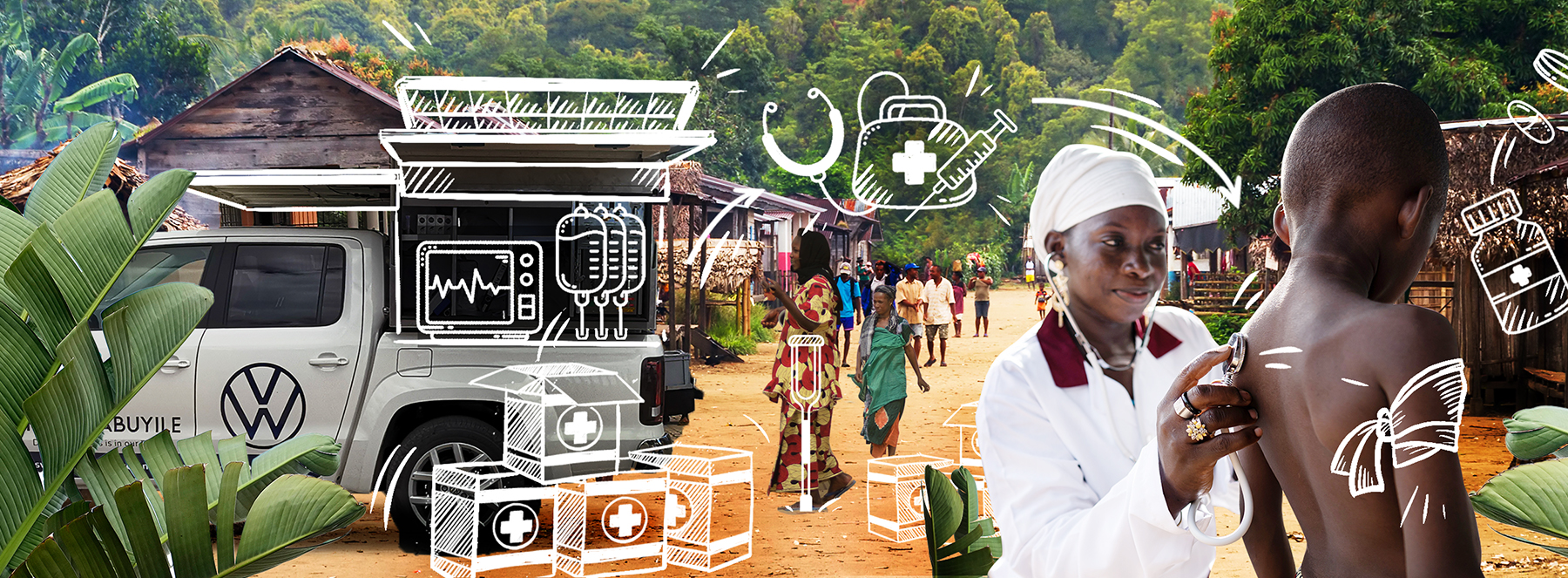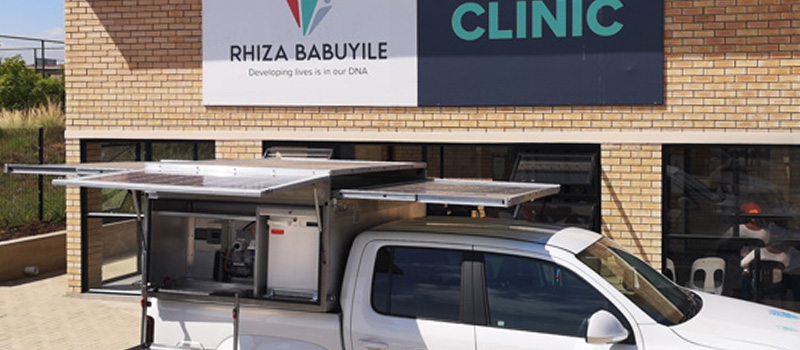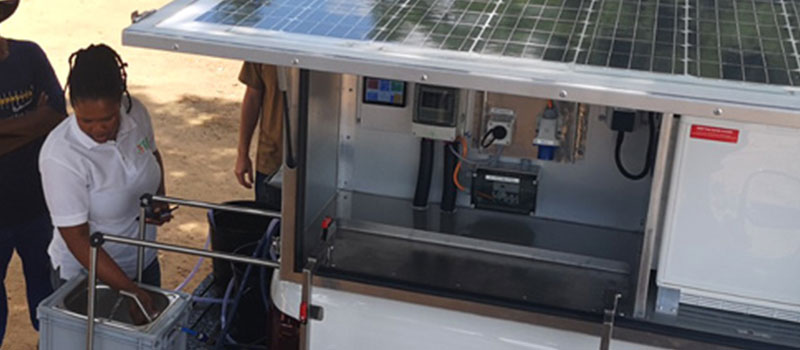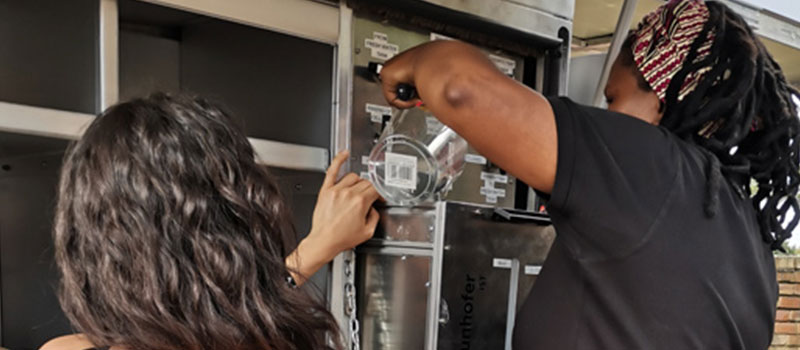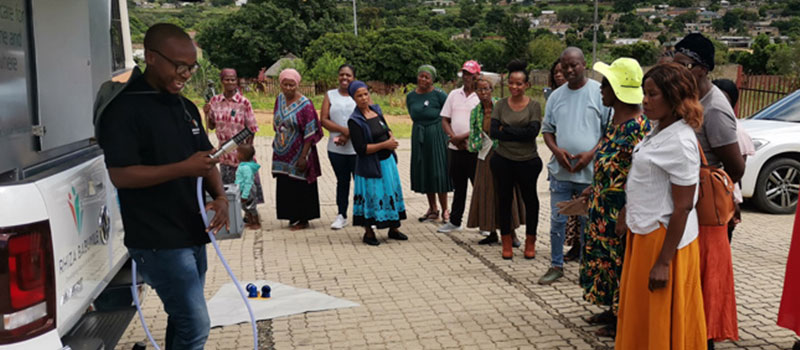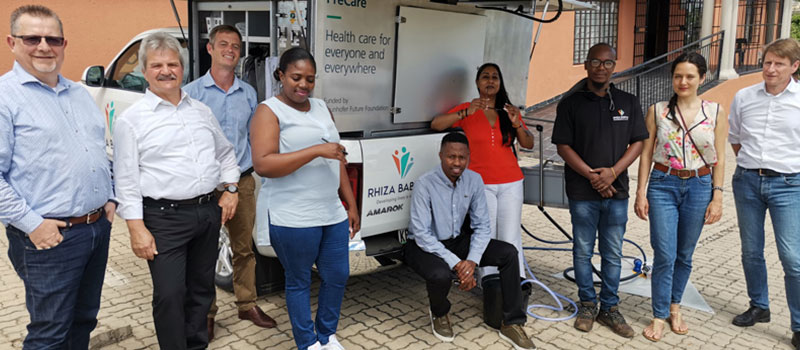Why do we need this new technology?
Poor access to people in rural regions of sub-Saharan Africa presents a significant obstacle to providing the area with comprehensive medical care — and on top of this, the people themselves often have limited mobility options. These issues make it difficult to ensure consistent healthcare coverage for many people. They also present obstacles to putting preventive measures in place across the board and to detecting and curbing life-threatening infectious diseases and epidemics at an early stage. The PreCare project has developed a compact mobile care unit that is installed in the form of a cabin on an all-terrain pickup truck, allowing it to be transported to remote regions.
